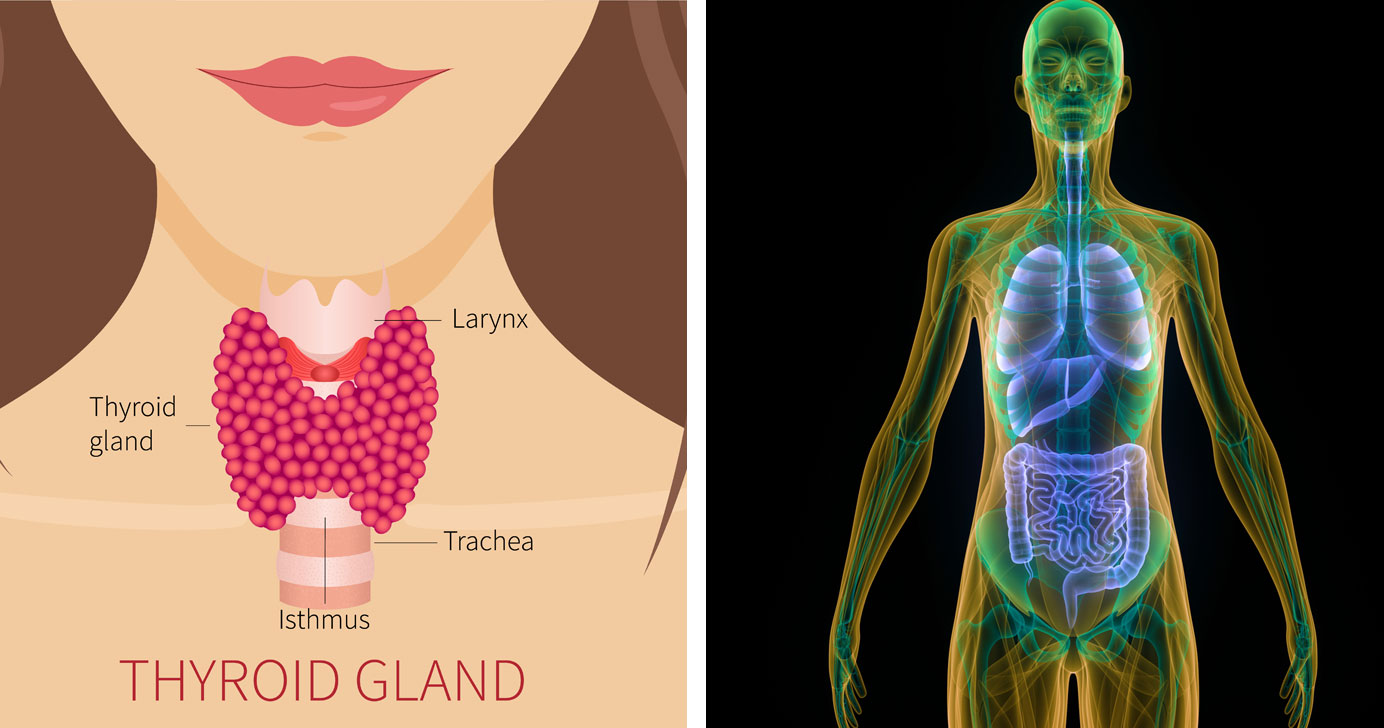Without a properly functioning thyroid gland, living a healthy, normal, balanced life is all but impossible to enjoy. That is because the gland, located in the front base of our necks, is responsible for producing all of the hormones our bodies need to function. These hormones help control metabolism and are what our other vital organs rely on for energy in order to work efficiently and properly.
It naturally follows that thyroid hormones can have a huge impact on how different parts of the body work, including the heart, liver, muscles, brain, and more. When the thyroid gland is under-active and does not produce enough thyroid hormone, it leads to a disorder known as hypothyroidism. The most common causes of an under-active thyroid are a lack of sufficient iodine in one’s diet, an underlying autoimmune disease, such as Hashimoto’s, and radiation treatment.
In terms of iodine deficiency, a change in diet can help ensure that you are getting enough. The human body does not make its own supply of iodine and so eating foods that are naturally rich in iodine, such as organic yogurt, cranberries, navy beans, strawberries, potatoes, cheddar or cheese made with goat’s milk, can help thyroid function. Thankfully there is an easy way to diagnose hypothyroidism, via a blood test, and from there it can be managed and treated with hormone therapy.
If left untreated, hypothyroidism can lead to a variety of different health issues. Joint pain, obesity, heart disease, infertility, depression, and even coma can result from the condition. By knowing what symptoms to look out for you can avoid those complications and get treatment before it spirals out of control. Here are the most common signs of hypothyroidism:
1. Sudden and unexplained weight gain 2. Muscle weakness 3. General fatigue 4. Constipation 5. Memory loss 6. Thinning, coarse, or dry hair 7. Rough, dry, pale skin 8. Puffy face 9. Sensitivity and/or intolerance to cold 10. Depression 11. Increased irritability 12. Muscle aches and cramps 13. Abnormal menstrual cycle with heavier or irregular periods in women
Check out the video below for more information:
Please SHARE This Information With Family and Friends











